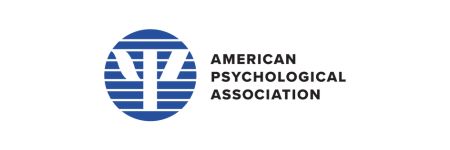 |
Welcome to APA's Portal for Comments
Speak up. Support psychology. Improve lives.
We need to hear from you! Your professional insight is an opportunity to advance the future of psychology and its impact. Boards and committees across APA seek comment on matters such as proposed resolutions, standards, guidelines, and reports. Comments are requested on various topics throughout the year.

Be directly involved in advancing the future of psychology.

Have input into developments that affect psychological science, practice, research, education and knowledge.

Use your knowledge and experience to help advance psychology in ways that improve lives.
Call for Comments: Proposed Revisions to APA's Model Act for State Licensure of Psychology Professionals
Deadline to Submit Feedback: March 3, 2026
Members of APA and interested members of the public are invited to provide comments on the proposed revisions to APA’s Model Act for State Licensure of Psychology Professionals (MLA).
The MLA is APA’s recommended guidance to states and policymakers on psychology licensure, representing the profession’s collective thinking about what effective psychology licensure should include. In 2024, the Commission on Accreditation (CoA) accredited its first master’s degree psychology program. To reflect this and other changes since the MLA’s last update in 2010, APA’s Board of Professional Affairs (BPA) appointed a task force to revise the MLA. In 2024, public feedback was solicited on the 2010 MLA and on an initial draft proposal for title and scope of practice for master’s professionals, which the Task Force then incorporated into a unified MLA. In 2025, BPA reviewed the Task Force’s submission and voted to release this document for public comment.
Reviewers may be particularly interested in commenting on the proposed scope of independent practice for master’s professionals, proposed updates to the scope of independent practice for licensed psychologists, the proposed requirements for education and training prior to obtaining licensure and the proposed titles.
Of the documents provided on the comment page in the column on the right, public feedback is requested specifically for the “Public Comment - Model Licensing Act Proposed Updates,” which contains the proposed statutory language in italicized text along with explanations in boxes to capture the Task Force’s rationale for various sections of the MLA. Please focus your comments on the italicized proposed statutory language and not on the explanatory/rationale text, and when possible, offer specific wording changes linked to line numbers in your comments.
The reference documents are provided for historical context and so that reviewers may see precisely what language was changed.
The comment period for this document ends on Tuesday, March 3, 2026.
Proposed Revisions to the APA Guidelines for Education and Training Competencies for Doctoral-Level Psychology Practice in Primary Care Settings
Deadline to Submit Feedback: March 21, 2026
The APA Board of Educational Affairs (BEA), in consultation with the work group charged with revising these guidelines, seeks public comment on proposed revisions to the APA Guidelines for Education and Training Competencies for Doctoral-Level Psychology Practice in Primary Care Settings.
These guidelines define recommended competencies to help educators and training programs prepare graduate students, interns, and postdoctoral fellows to provide psychological services in primary care settings. Consistent with the APA policy on Developing and Evaluating Standards and Guidelines Related to Education and Training in Psychology, enacted by the APA Council of Representatives, these guidelines are intended to be aspirational.
The APA Council of Representatives first approved the competencies in 2015. The proposed revisions update the guidelines to reflect the skills needed to practice effectively in rapidly evolving primary care settings. The revised document begins with background information on the competency movement in professional psychology and the history of competencies in primary care psychology. It then describes the revision process, defines key terms, and presents the competencies in six clusters, along with guidance on their use. Sample behavioral anchors illustrate how the primary care psychology competencies may be applied.
The comment period for this document ends on Saturday, March 21, 2026.
Register/Log In
Returning visitor? Use the "Login" button to access comments.
Don't have an account? Use the "Register" button. Once you submit your registration, use the "Login" button to access comments.
Contact Us
American Psychological Association750 First St. NE
Washington, D.C 20002-4242
Email: governance@apa.org

